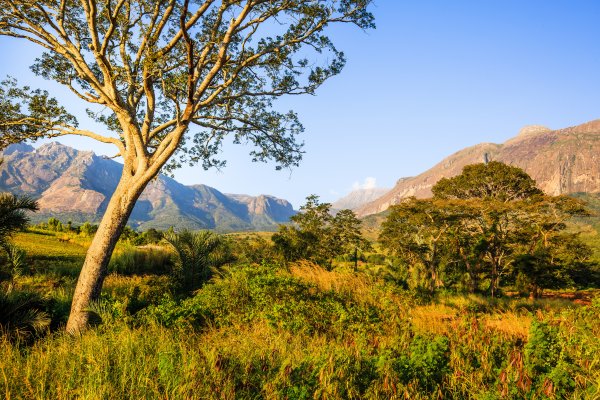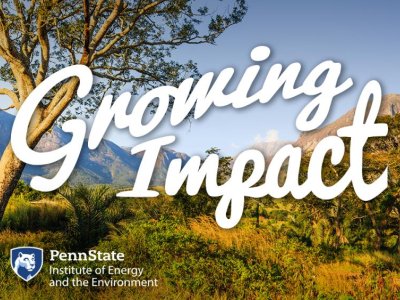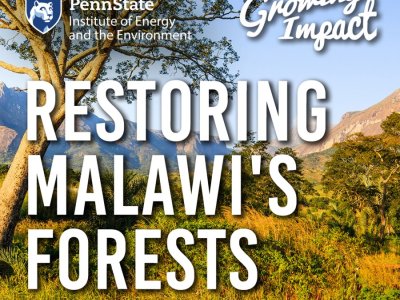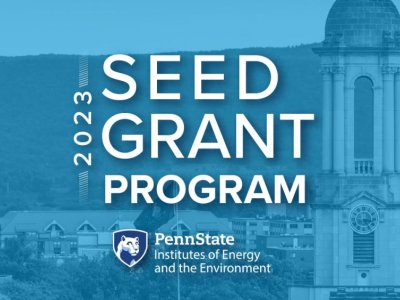
Sub-Saharan Africa (SSA) continues to experience upward environmental degradation, with annual forest loss estimated at 3.94 million ha from 2010-2020 and 65% of degraded productive land. Such dire trends, which act slowly as disasters for livelihoods and landscapes, have prompted a large appeal for Forest landscape restoration (FLR), considered to symbiotically help to mitigate and adapt to climate change and restore biodiversity and other ecosystem functions and services that support natural resource-based livelihoods and food security. FLR is unique as a people-centered approach of restoration and is an integral part of the global ecosystem restoration policy – a major global environmental policy under the 2021-2030 UN “Decade of Restoration”. Countries have pledged to restore millions of hectares of degraded landscapes by 2030, including 32/54 in SSA under its FLR flagship, the AFR100.
While many expectations are placed on the idea of restoration to mitigate climate change, recover biodiversity, and contribute to support livelihoods and food security, evidence is lacking on material win-win outcomes and how those balance local and global sustainability needs. Integrative, interdisciplinary approaches that link geospatial mapping of ecological patterns with qualitative and quantitative social science data at multiple scales are needed to address the calls for efficiently and effectively monitoring restoration outcomes to better understand the environmental and socio-institutional gains or rather trade-offs. We propose to advance such assessments.
We will build an innovative integrated methodology that combines remote sensing and social data and approaches to measure socio-environmental outcomes of restoration, and to reveal trade-offs, if any. We aim to understand propelled ecological changes (ecosystem change), socio-economic benefits (people), and governance improvements (institutions) and explore adequate integrated monitoring approaches. We will use the case of Malawi, a leading country on restoration implementation in SSA, which has a nascent country-level monitoring framework to inform further. We will focus on restoration interventions being implemented in Central and Southern Malawi.
Substantiating (or not) the socio-ecological benefits of restoration, including filling the social data gap, is necessary to support improved implementation and strategic decision-making on restoration policy. This seed grant will advance critical literature review, collaborations, and scoping activities to anchor data collection and further the writing of an external proposal to adequately addressed the questions. Besides its intellectual relevance, the research offers an opportunity to answer policy challenges. It will benefit the monitoring working group of the AFR100 initiative, showing considerable relevance and societal impact for restoration policy and practice. The collaborations to foster will enhance peer-to-peer and senior academic mentoring on research and extramural funding processes, and also strengthen research-practice relationships for societal good.
Resulting Funding
- Award Number (FAIN): 2407753, Award Period of Performance: 08/15/2024–07/31/2029, Project Title: DISES: Socioecological Outcomes of Restoration in Forest-Grassland Ecosystems; Managing Division Abbreviation: RISE; Funding Opportunity: NSF 23-609 Dynamics of Integrated Socio-Environmental Systems; Amount: $1,300,000
Resulting Publications
- Elias, F., Djenontin, I.N.S., Kamoto, J.F.M. and Mansourian, S. (2024), Accelerating forest landscape restoration monitoring in Africa: informing tangible actions from a practical perspective. Restor Ecol e14366. https://doi.org/10.1111/rec.14366
Researchers
Tong Qiu

Judith Kamoto

Tangu Tumeo

Clement Adjorlolo








